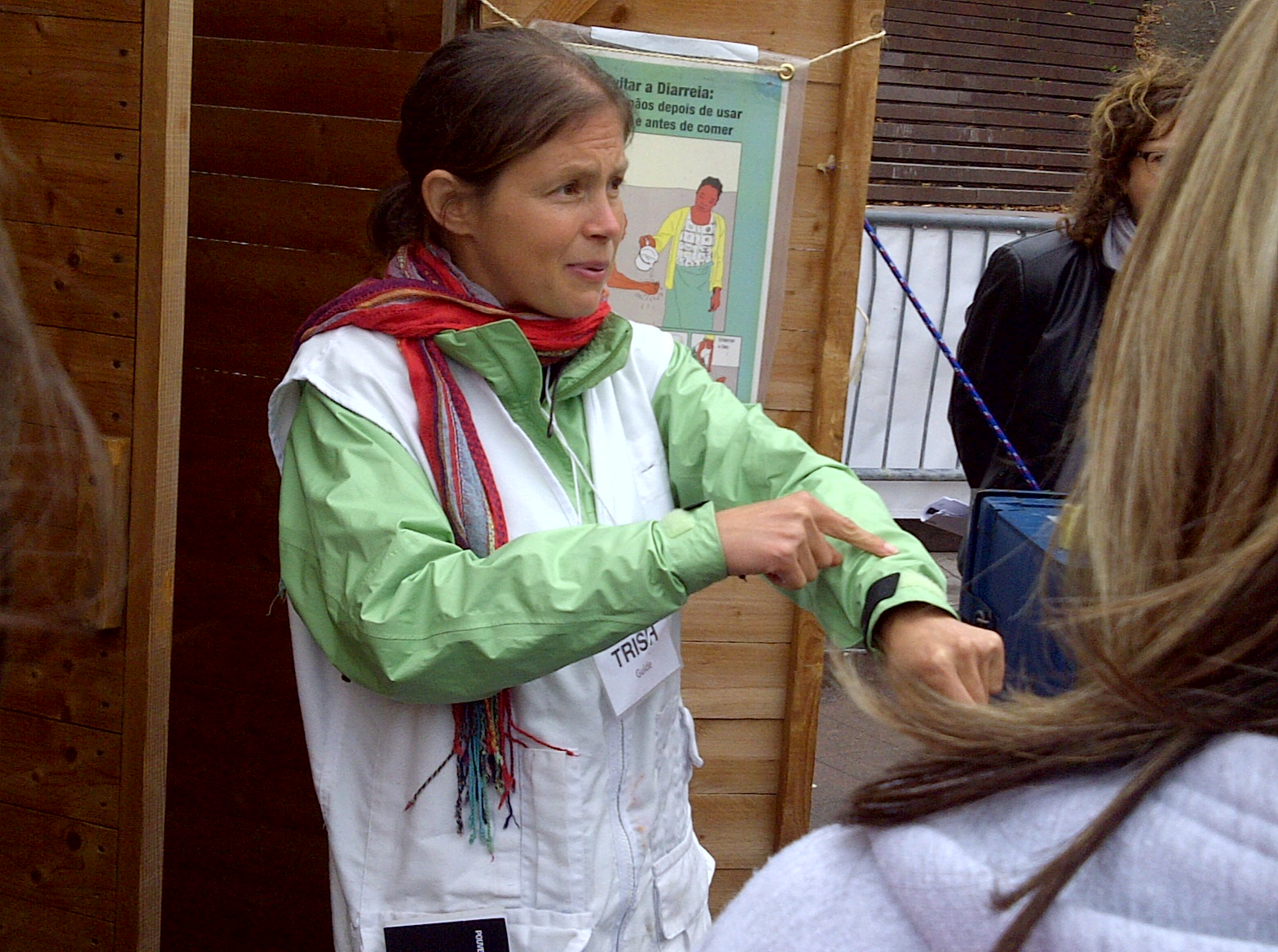Quebec City, Day 1
September 29, 2021
“We cannot force empathy”
Today, the year 1985 was often in my mind.
In 1985, at the age of 10 years old, I saw my first picture of a malnourished child. It was a child from Ethiopia, and it is an image that has forever haunted me. The concepts associated with the image drove me to become a nurse, and to eventually work for Médecins Sans Frontières / Doctors Without Borders.
Today as I toured school groups through the refugee camp, the shocked looks on students’ faces brought back to life my 1985 memories. For some the camp brings up subjects they may have never confronted before. Understandably, this can be challenging.
A student on one of my tours cried in the malnutrition station today. I left her to cry, because malnutrition is hard to comprehend. It is an injustice. Death to malnutrition is unpardonable. I often wish that the situation of malnutrition in this world made more people cry, and made more people act. I wanted to congratulate and thank her for crying, to thank her for her empathy.
At one point in the day I headed into the streets to encourage people to come to the exhibit. I met some tourists who clearly told me that they were in Quebec City to visit the city not to hear about the problems of the world.
The stories of so many flooded into my mind. The stories of those who were not expecting to have their lives interrupted by rebel attacks, who had not been prepared to have their entire lives turned upside down. The stories of children who had spent their lives preoccupied with playing and learning until the day they were kidnapped and turned into child soldiers. I wanted to share so much, even to force so much upon these tourists, but there was no point.
We can’t force empathy. We can only share with those that are open to receive information. And we just have to be patient and hope that this time will come.
Each one of us is touched by something different. For me it was malnutrition. That was the case in 1985, and it continues to be the case. For some it is reproductive health care. For some it is access to water. Today the potential of my 1985 experience was often in my mind. With every group I wondered if there would be a station, a moment that would recreate my 1985 experience for someone else. It motivated me to tell as many stories as I could, to create as much of a reality as is possible here in Quebec City.
1985 will forever stay with me. I hope that for the same reason 2011 stays with some of these visitors.
(Trish Newport)
Quebec City, Day 1
September 29, 2021
13 year olds learn about fistula
The Republic of Chad has been plagued for years by war, an influx of refugees and ongoing violence between different rebel factions. Neighbouring Sudan has seen hundreds of thousands fleeing its Darfur region. The need for international humanitarian aid continues unabated.
In Chad, one in 11 women dies of childbirth or pregnancy. As we toured our first school groups today through the Refugee Camp exhibit we set up in Quebec City, I am reminded of this reality. The kids I guided are 13 years old and they wanted to hear a story about someone their age – to better understand the reality of a refugee.
I was immediately reminded of Fatima who arrived accompanied by her mother at the hospital to give birth to her first child. She had been in labour for two days in the refugee camp prior to being transported to the hospital. Fatima’s baby was trapped in her pelvis and her labour had become ineffective because her uterus was tired. We were able to help Fatima have her baby. Sadly, he was stillborn.
This journey had been too long for this new life to travel safely. Fatima was sad to hear this news and, in her grief, she also learned that her body had been damaged by this long birthing process. Fatima had a fistula.
We explained to Fatima that a fistula is a complication where there is a new opening between her bladder and her vagina which causes urine to leak uncontrollably from her vagina. It’s a problem we rarely ever see here in Canada because women have access to care for labour and birth. She would need a specialised surgery in order to have her fistula repaired.
Lucky for Fatima, there was a fistula project started by Médecins Sans Frontières in a neighbouring city. Otherwise, it is not uncommon for women to live with such a condition for years, maybe for life. They are isolated from their community because they smell; rejected by their husbands because they did not bear a live child; and have difficulty becoming pregnant again due to infections that ensue from this complication.
The kids from my tour were shocked. Many of them didn’t know anyone of their age to be pregnant, let alone suffer such a long road due to the challenges related to childbirth.
I’m a midwife, comfortable dealing with medical issues like these but not so experienced when it comes to discussing them in public. These students reacted to Fatima’s story in a perfectly understandable way, one which will hopefully give them greater insights into the many challenges facing women who lack adequate access to the kind of care that our organization provides.
(Nathalie Pambrun is a midwife from Manitoba, now based in New Brunswick)
